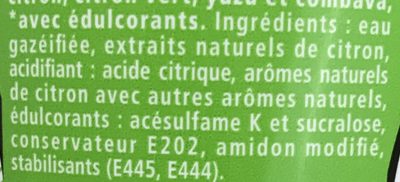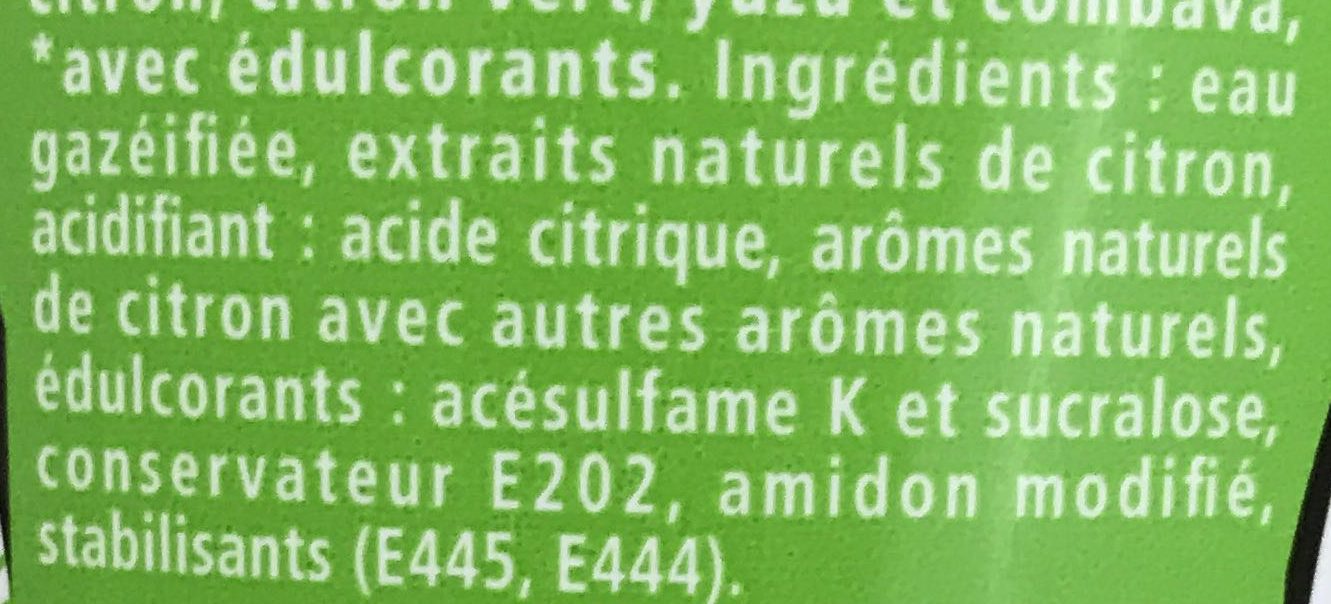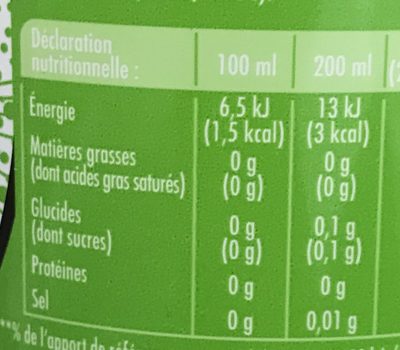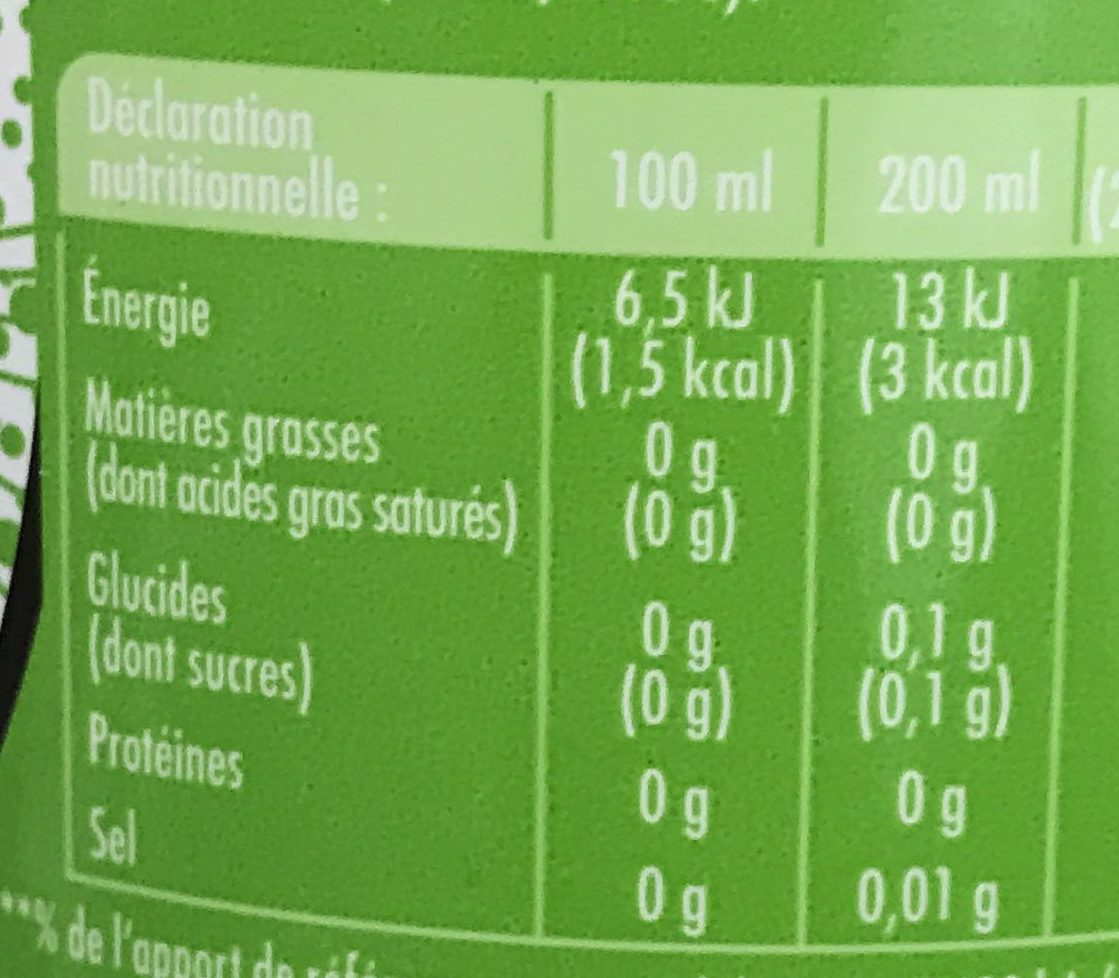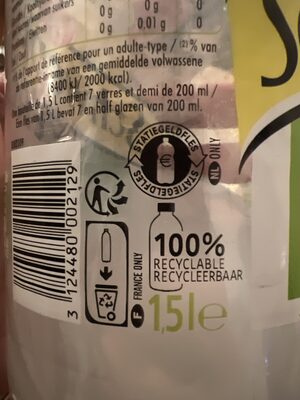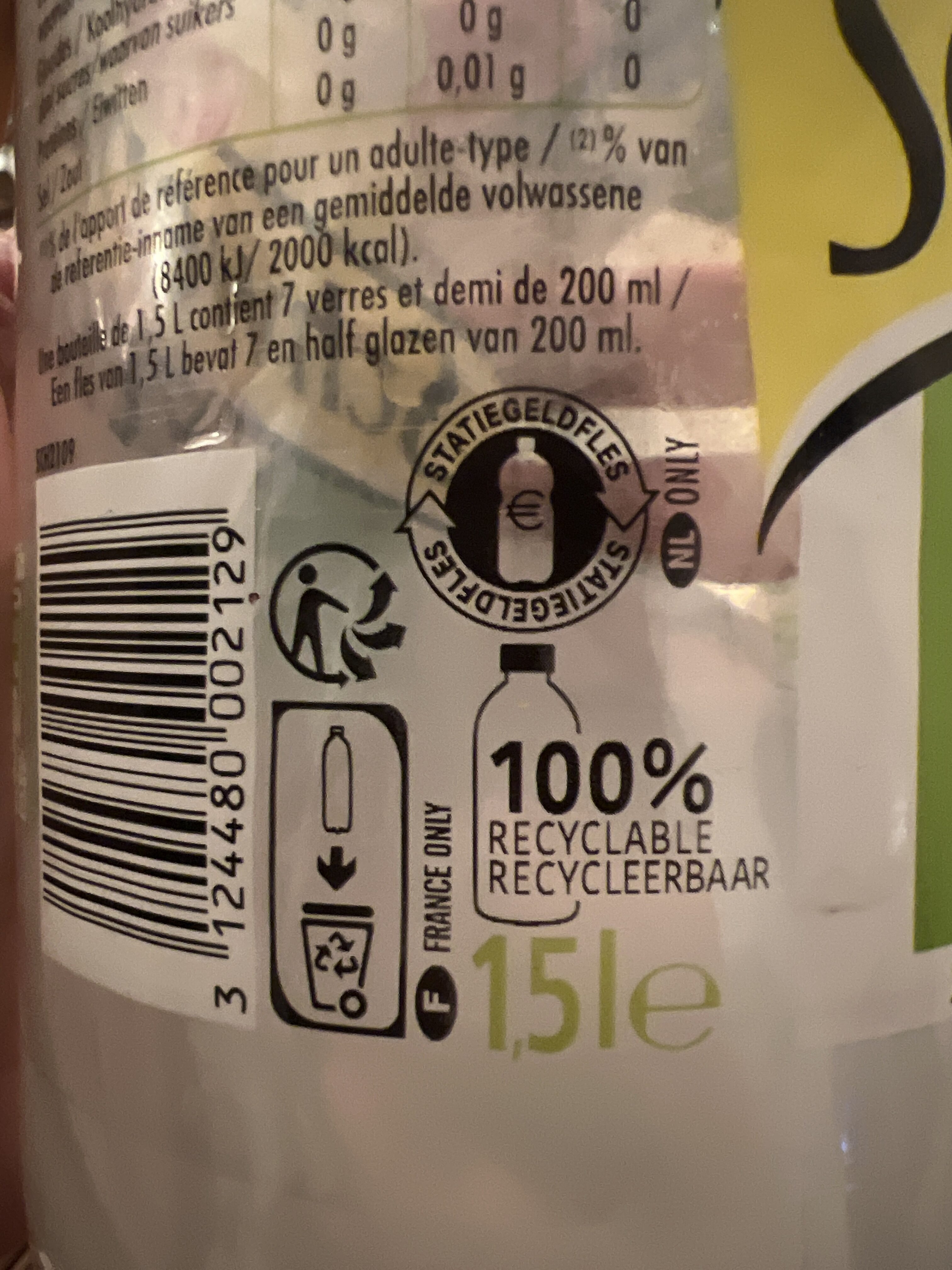Schweppes Zero Lemon - 1,5 l
This product page is not complete. You can help to complete it by editing it and adding more data from the photos we have, or by taking more photos using the app for Android or iPhone/iPad. Thank you!
×
Barcode: 3124480002129 (EAN / EAN-13)
Allgemengen Numm:: Boisson gazeuse rafraîchissante saveurs citron, citron vert, yuzu et combava avec édulcorants
Quantitéit: 1,5 l
Verpackungsart: en:Bouteille, en:Plastique
Marken: Schweppes
Kategorien: en:Plant-based foods and beverages, en:Beverages, en:Plant-based beverages, en:Carbonated drinks, en:Fruit-based beverages, en:Artificially sweetened beverages, en:Sodas, en:Diet beverages, en:Fruit sodas, en:Diet sodas, en:Lemon soft drinks, en:Light fruit sodas, en:Light lemon soft drinks, en:Sweetened beverages
Labelen, Zertifizéierungen, Auszeechnungen:
Triman
Geschäfter: Leclerc, Intermarché, Magasins U
Country: Belsch, Frankräich, Lëtzebuerg (Land)
Matching with your preferences
Report a problem
Data sources
Product added on vun nash
Last edit of product page on vun raphael0202.
Produkt Säit och geännert vun date-limite-app, ecoscore-impact-estimator, kiliweb, magasins-u, manu1400, openfoodfacts-contributors, packbot, quechoisir, roboto-app, scanbot, tacite, theobest, yuka.SFkwY0dxZzl1OE5YcFBjeW96bnQvK2g0bHFHTlVtYWFDZU1MSVE9PQ, yuka.U29BUkxLRVpudVVqbVBNMDFBL3kvYzhreG9YMmUxMk5PL3MvSUE9PQ, yuka.UzVvQUZvb00vY2RWa3RzQ3h3bnV4b2hWN3FlNVdtYTdGTzBVSVE9PQ, yuka.WGJBYkl2b0tudGNBdS8wQitoRGw4KzlObjVxMFgwMmJKKzhZSVE9PQ, yuka.YlBndVNMNDRoTUlFbGM4VjBBTDMvZk5rbkkveGQweTFCZE16SUE9PQ.


